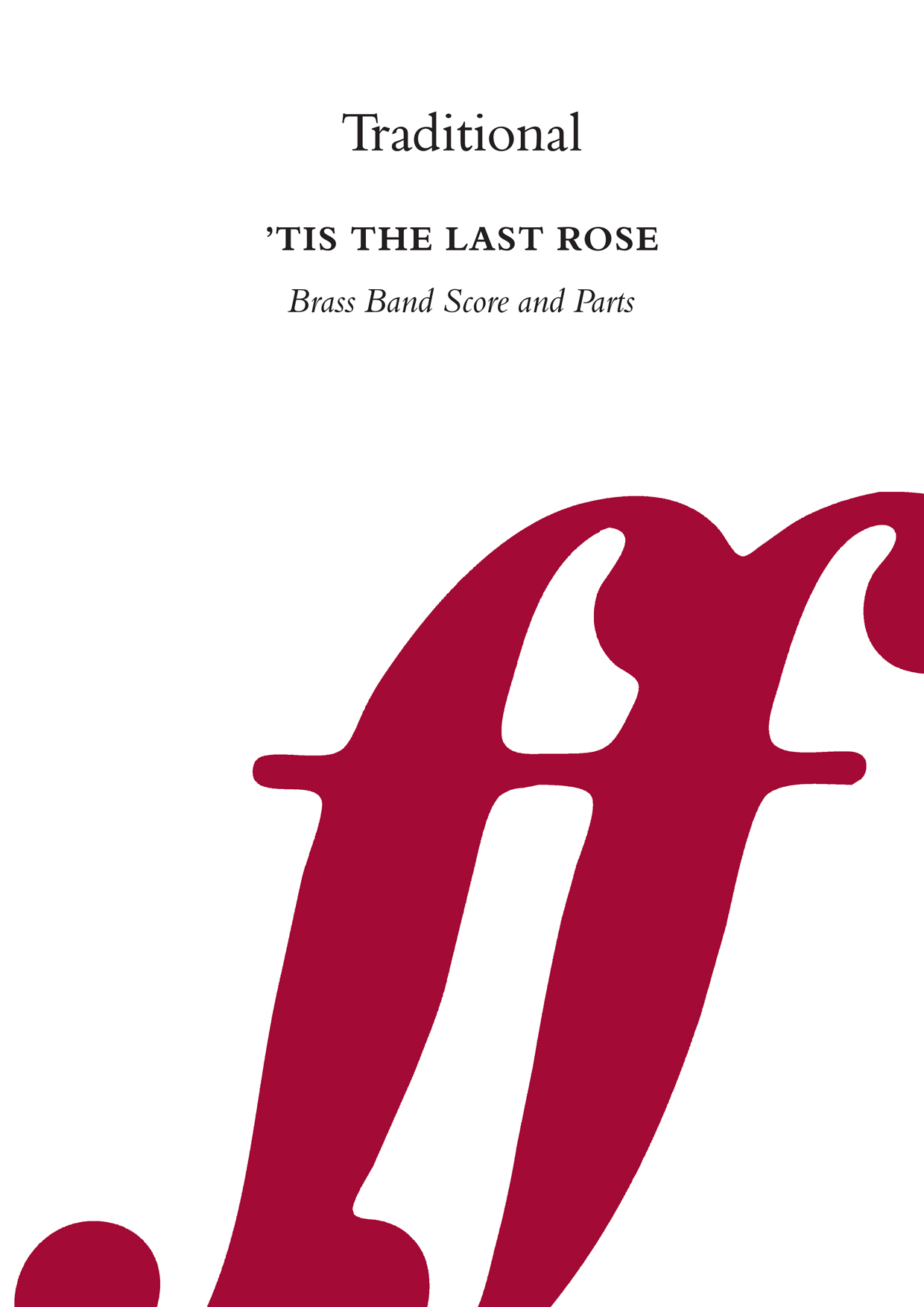Results
-
£15.99
Tis The Last Rose Of Summer (Score & Parts) - Traditional
It is often thought that 'Tis the Last Rose of Summer came from the Victorian era, when Irish songs were very popular. However this was first published in 1813 and has been adapted and arranged by many composers and arrangers over the years. This arrangement, as a Flugel Horn solo, by Gary Westwood reveals the tenderness in this wistful love song.Brass Band Grade 4: Advanced Youth and 3rd SectionDuration: 5 minutes
In Stock: Estimated dispatch 1-3 working days
-
 £74.95
£74.95CRY OF THE CELTS - Hardiman arr. Peter Graham
Additional Score: 29.95A spectacular mini-concert. Contains 5 movements: 1)Nightmare, (includes Lord of the Dance and Stolen Kiss) 2) Suil a Ruin, 3)Breakout, Lament, and 4)Victory. Featured by Yorkshire Building Society Band.
Estimated dispatch 3-5 working days
-
 £124.95
£124.95WAR OF THE WORLDS (complete suite - individual titles also available separately) - Peter Graham
Additional Score: 34.95War of the Worlds was commissioned by the Senzoku Gakuen College of MusicSaxophone Orchestra and first performed by them in the Maeda Hall, Japan on June 292012, the composer conducting. The music is dedicated to Professor Shin-ichi Iwamoto.
Estimated dispatch 3-5 working days
-
£40.00
Sea of Tranquility
This work finds its tranquillity through a lilting compound metre and a tonality based on modes. The key structure depends on shifts of minor thirds. Melodies are simple and gently passed from part to part whilst the ending reflects the mystery with a poignant tri-tone figure.
-
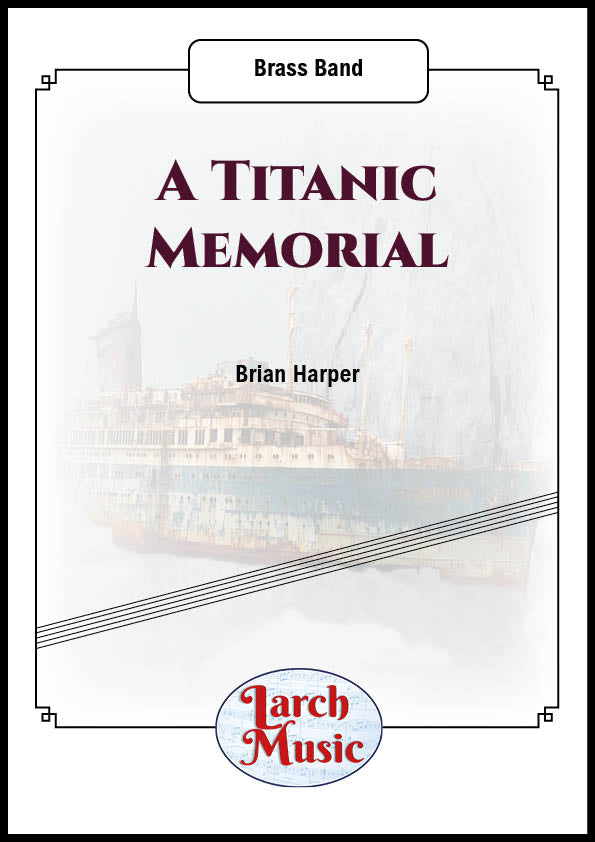 £30.00
£30.00A Titanic Memorial - Brass Band Sheet Music Full Score & Parts - LM393
COMPOSER: Brian HarperRMSTitanicwas a British passengerliner, operated by theWhite Star Line, thatsank in the North Atlantic Oceanon 15 April 1912 after striking anicebergduring her maiden voyage fromSouthampton, England toNew York City, United States.Of theestimated 2,224 passengers and crewaboard, more than 1,500 died, making itthe deadliest sinking of a single shipup to that time.It remains the deadliest peacetime sinking of anocean linerorcruise ship.The disaster drew public attention, provided foundational material for thedisaster filmgenre, and has inspired many artistic works.LM393 - ISMN : 9790570003938
In Stock: Estimated dispatch 3-5 working days
-
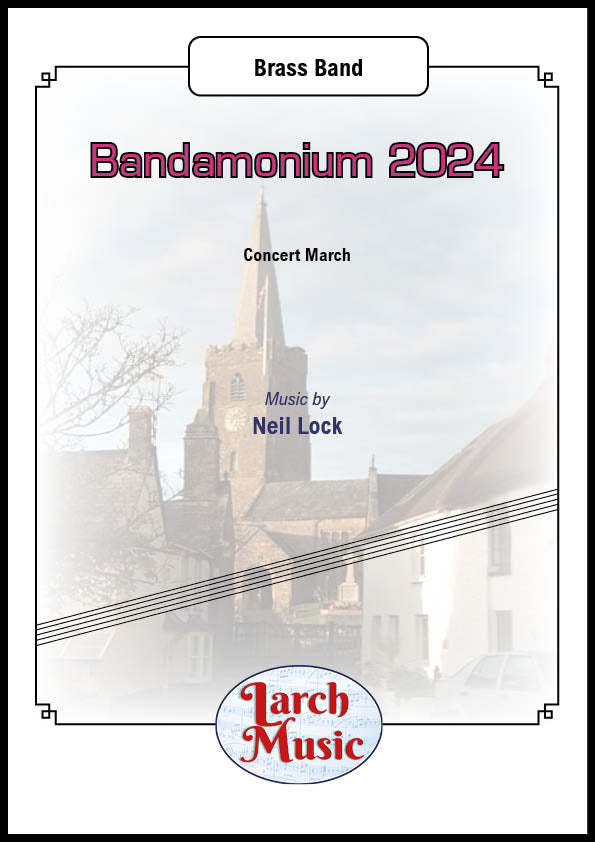 £30.00
£30.00Bandamonium 2024 - Brass Band Sheet Music Full Score & Parts - LM541
COMPOSER: Neil LockThis march was submitted to the march composers' competition for "Bandamonium 3"in Hatherleigh, Devon in July 2024. The winning march was played by massed bands at the conclusion of the celebrations on Saturday 27th July 2024. Unfortunately, this march took second place in the competition, behind the march of Paul Pennicotte-Henrie, conductor of Okehampton Silver Band.The march can be played with or without the singing. (Even at the Whit Friday marches, begad!) I suggest that it should be introduced by 3-beat rolls.When played with singing, the "Bandamonium" lyrics (bars 10-13 and 56-57) are to be sung by all players, keeping to their own parts, with appropriate octave adjustment for their individual singing voices. Conductor and percussionists should sing with the main theme (Db and C at bars 10-13, F at 56-57). Listen to the 3rd cornet players!There is an additional part for Singers, in which the trio melody (bars 58 onwards) can be sung by Soprano and Tenor singers at a moderate choir standard. An octave-down option is also provided in the higher bars. This part can be given to "spare" singers within the band, or to singers external to the band if opportunity permits. The lyrics are:We are in Devon,We're in Hatherleigh,Whit Friday heaven,But we're marching free!Now it's past seven,Time to party,At BandamoniumIn Hatherleigh!LM541 - ISMN : 9790570005413
In Stock: Estimated dispatch 3-5 working days
-
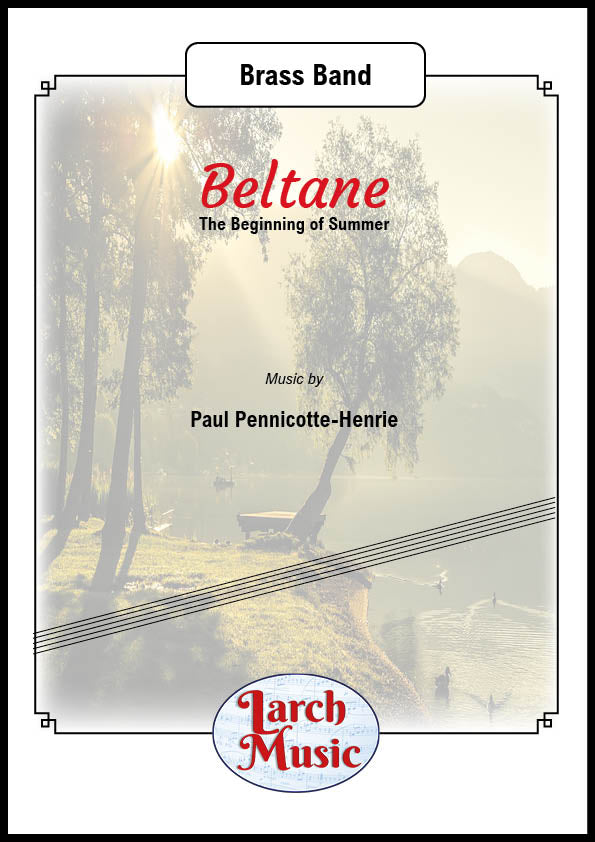 £35.00
£35.00Beltane (The Beginning of Summer) - Brass Band - LM268
COMPOSER: Paul Pennicotte-HenrieA delightful descriptive original composition from Paul Pennicotte-Henrie on the beginning of a British Summer.Three continuous movements in this 7 and a half minute piece although the movements could be played on their own.A great addition to your next concertSuitable Section 4 Upwards
In Stock: Estimated dispatch 3-5 working days
-
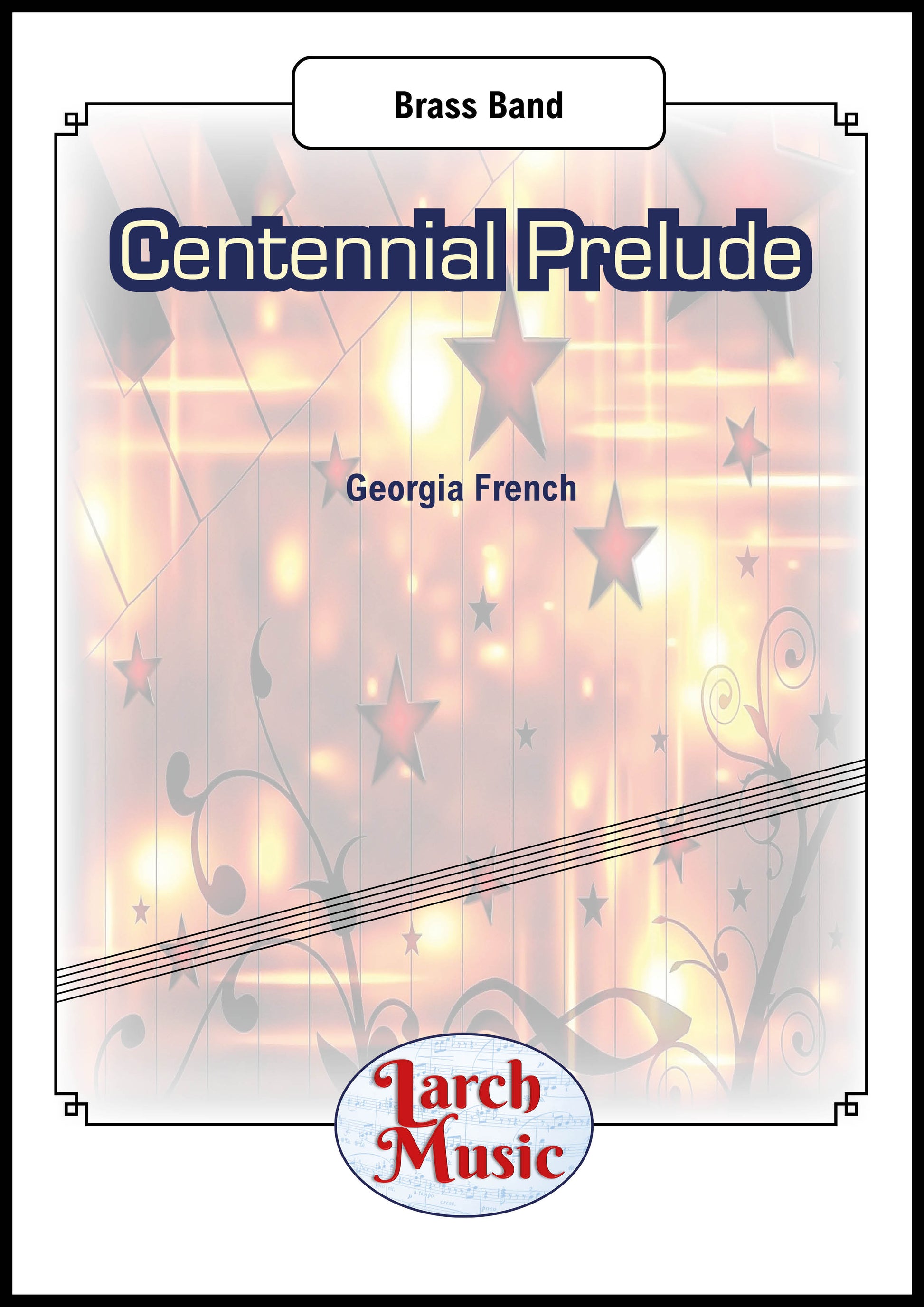 £30.00
£30.00Centennial Prelude - Brass Band Sheet Music Full Score & Parts - LM675
COMPOSER: Georgia FrenchComposed for the ODBBA Centenary Concert and performed at he concert on 11th June 2023A brand new composition from the pen of Georgia French and makes a great opener for your next concert. A carillion of cornets open the piece leading to a mix of trombone and tenor horn providing the tune with a delightful overlay from solo cornet.Fanfares and effects appear from all sections leading a to a brilliant ff endingLM675 - ISMN - 9790570006892
In Stock: Estimated dispatch 3-5 working days
-
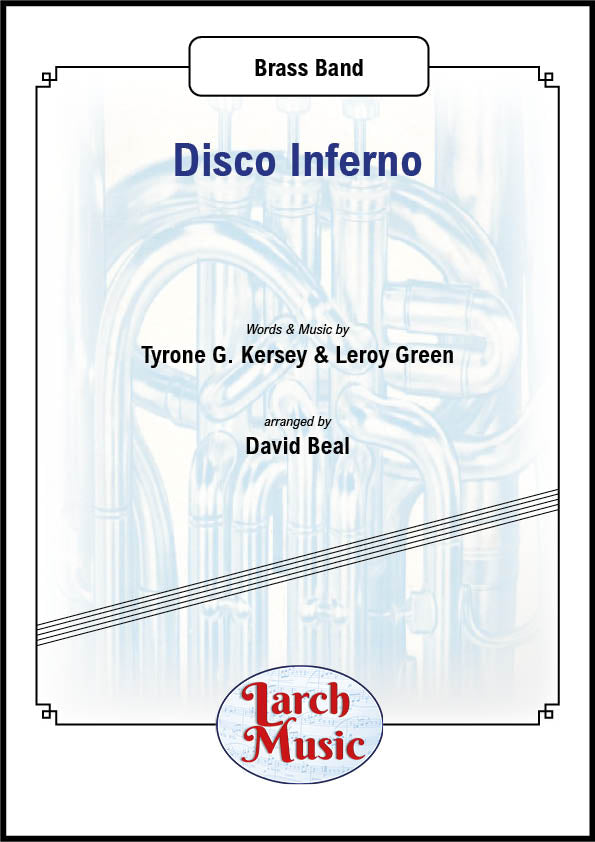 £25.00
£25.00Disco Inferno - Brass Band Sheet Music Full Score & Parts - LMAM026 - David Beal
COMPOSER: Leroy Green, Tyrone G. KerseyARRANGER: David BealDescriptionDisco Inferno (The Trammps)Arranged for Brass Band"Disco Inferno" is a song by American disco band the Trammps from their 1976 studio album of same name. With two other cuts by the group, it reached No. 1 on the US Billboard Dance Club Songs chart in early 1977, but had limited mainstream success until 1978, after being included on the soundtrack to the 1977 film Saturday Night Fever, when a re-release hit number eleven on the Billboard Hot 100 chart.It was also notably covered in 1993 by American-born singer Tina Turner on What's Love Got to Do with It, and in 1998 by American singer-songwriter Cyndi Lauper on the A Night at the Roxbury soundtrack. Among others who covered this are Damien Lovelock, Hardsonic Bottoms 3, and Vicki Shepard.Any purchases of this Item cannot be made from this listing please click on the link above - Any purchase using this site will be refundedAbout Digital DownloadsDigital Downloads are downloadable sheet music files that can be viewed directly on your computer, tablet or mobile device. Once you download your digital sheet music, you can view and print it at home, school, or anywhere you want to make music, and you don't have to be connected to the internet. Just purchase, download and play!PLEASE NOTE: Your Digital Download will have a watermark at the bottom of each page that will include your name, purchase date and number of copies purchased. You are only authorized to print the number of copies that you have purchased. You may not digitally distribute or print more copies than purchased for use (i.e., you may not print or digitally distribute individual copies to friends or students).
In Stock: Estimated dispatch 3-5 working days
-
 £25.00
£25.00Hymn of Hope - Brass Band - LM819
COMPOSER: Samuel WebbeARRANGER: Derick KaneA brilliant hymnt tune arrangement on the tune "Earth has no sorrow that heaven cannot heal".Carefully arranged by Derick Kane with delicate scoring and use of timbre.
In Stock: Estimated dispatch 3-5 working days

